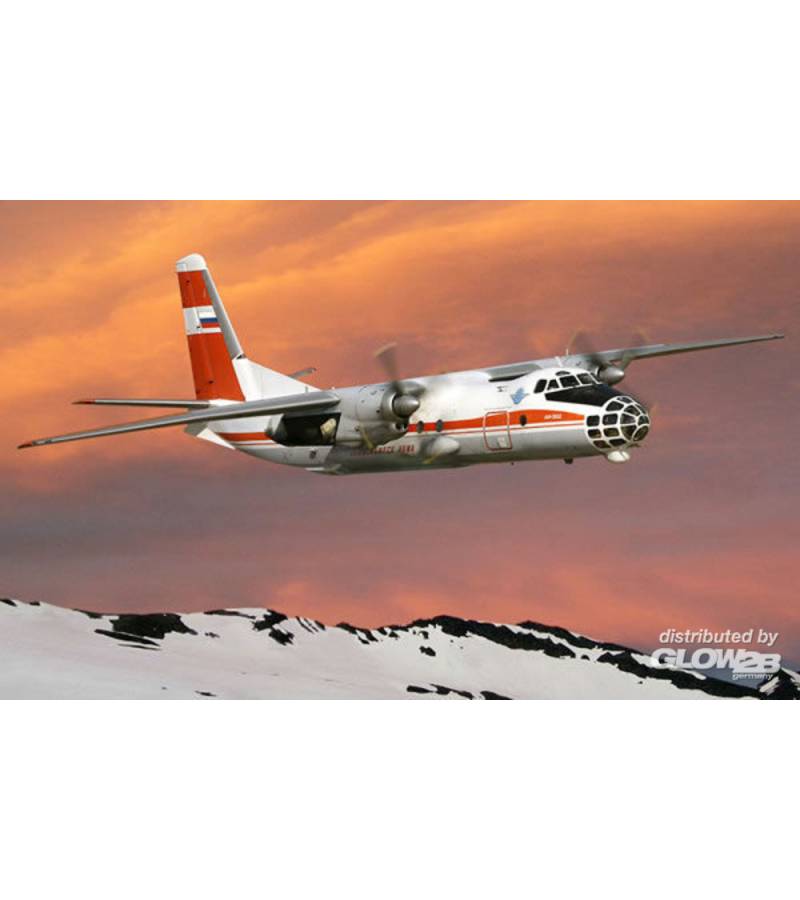The Antonov An-30 (NATO designation: Clank) was a Soviet transport and photogrammetric high-wing aircraft from the post-war period. The prototype flight took place in August 1967. Serial production was carried out in the years 1971-1980 and led to the creation of 123 copies of this aircraft. The drive was provided by two turboprop engines Ivchenko AI-24WT, 2,820 HP each, and an auxiliary jet engine RU-19A-300.
The Antonov An-30 was developed on the basis of the An-24T transport aircraft. The main changes concerned the front part of the fuselage, in which a fully glazed fuselage nose was used, housing a separate navigator's cabin. In the front of the fuselage, special measuring equipment and cameras were also installed. The main task of An-30 was to make special cartographic measurements and taking photograms that allowed to reconstruct the mutual location of objects, e.g. on maps. In the course of serial production, several development versions of this aircraft were created, including: An-30A (basic serial version, intended for civilian use), An-30B (military version), An-30D (extended range version) or An- 30M (meteorological version).






